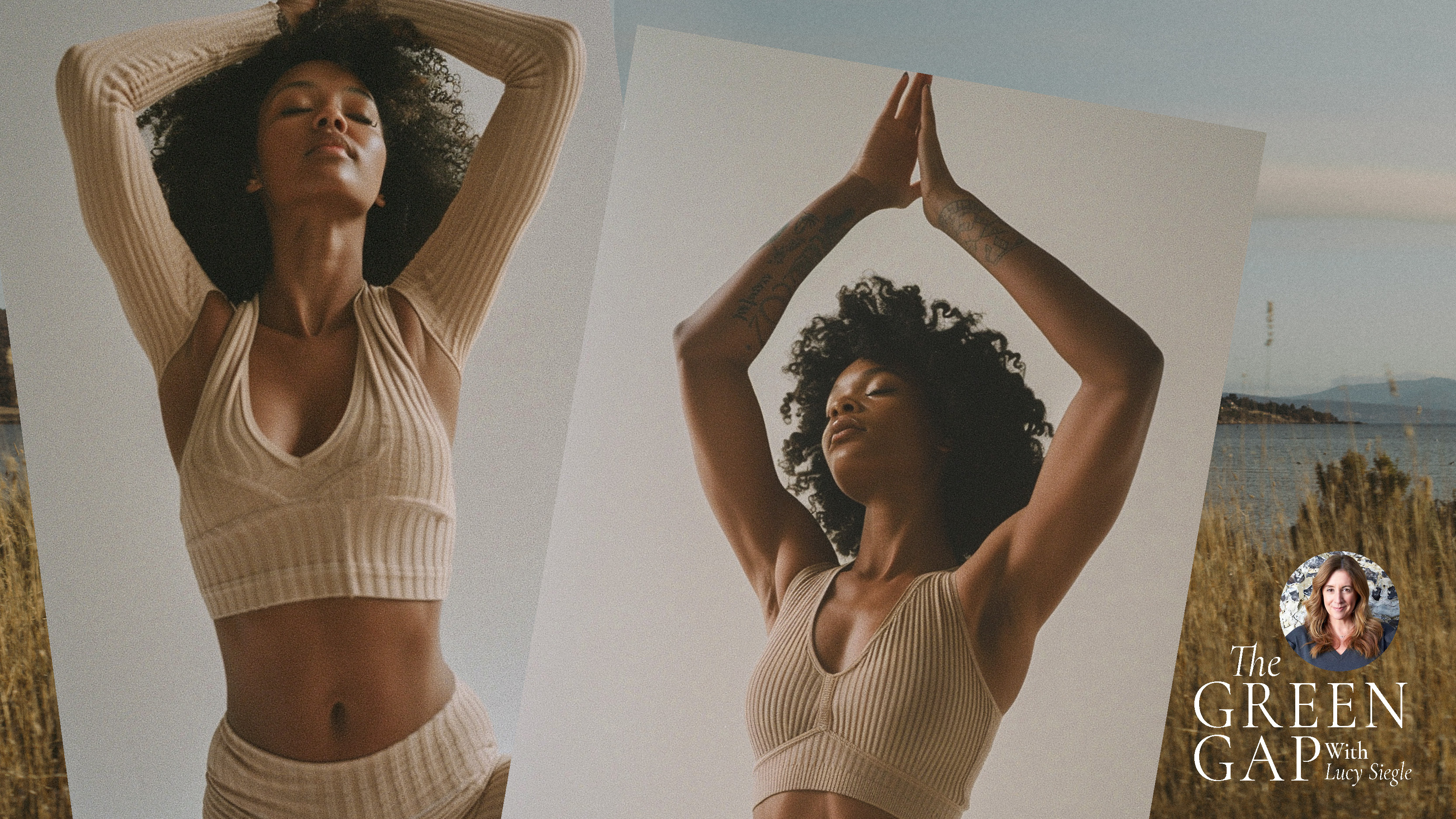Did You Know? Your Leggings Might Outlive You - Meet the Activewear Brands Vowing to Protect the Planet
"Almost every pair of leggings ever made is still out there, slowly fragmenting into microfibres that drift through air, water and our own bodies."


I can’t recall a time the UK has looked so sporty. It’s hard to tell these days whether someone’s on their way to pitch to investors, walk the dog, or run a marathon, such is the ubiquity of athleisurewear.
I’m no exception, which is why I'm constantly on the hunt for the best sustainable activewear brands. I buy some kit second-hand (my favourite zip-pocket vest is from TRAID), but after swapping outdoor bootcamps for indoor classes, I’m not ready to look like Stig of the Dump in a mirrored Pilates studio.
Here’s the sobering bit: however fit I get, my leggings will outlive me by hundreds of years. Most are spun from polyester, nylon and elastane - all plastic polymers made from oil and virtually indigestible to the natural world. There’s no “away” when it comes to plastic fashion, or any plastic. Studies have estimated that 79% of plastic produced so far is still with us and weighs the same as one billion elephants.
Almost every pair of leggings ever made is still out there somewhere, slowly fragmenting into microfibres that drift through air, water and, increasingly, our own bodies. Further research from The Waste and Resources Action Programme suggests synthetic leggings might lose their stretch after a year or two - and while we might chuck them before then, the material itself will persist for centuries.
@estroniunfiltered Mission natural fibers activewear
♬ original sound - estroniunfiltered
Tackling the billion-elephant-sized problem
Big-name sports brands talk about sustainability, but few have a joined-up plan for tackling this billion-elephant-sized problem. They keep churning out products without credible systems for collection or recycling, and less than one per cent of plastic textiles are recycled globally.
In short, the footprint of a pair of leggings begins long before your first squat or spin class. So I’ve been hunting for alternatives to those oily, compressive yarns from petrochemical plants — without sacrificing performance or style.
Tala, founded by Grace Beverley, is one of the more convincing players. The focus is on reducing plastic waste and overproduction through small-batch manufacturing, transparent supply chains and long-lasting pieces designed to outlive fast-fashion trends. Backed by the same investor as Me+Em, Tala has an eye for quality and detail — though it remains to be seen whether small-batch ideals can survive now that the brand has opened physical stores.
Celebrity news, beauty, fashion advice, and fascinating features, delivered straight to your inbox!
Then there’s Silou, the achingly Instagram-ready label co-founded by model Tatiana Kovylina and Phoebe Greenacre. It’s not (yet) plastic-free, but the brand earns points for using recycled polyamides and producing ethically in European factories. The aesthetic is elevated, the cuts are built to last, and the focus is on low-waste production rather than disposable style.
If you’re willing to skip leggings entirely, Community Clothing’s Organic Athletic range — from Patrick Grant of The Great British Sewing Bee fame — is the refreshing, plastic-free alternative. It’s a fun, unisex lineup of vests, T-shirts and sweats made entirely from natural, biodegradable fibres and manufactured in British factories. It proves performance doesn’t have to mean plastic, but it does mean shorts.
Going global, Pangaia’s 365 and Motion Series ranges use a head-spinning mix of bio-based and plant-derived materials — from seaweed fibre and organic cotton to bio-nylon — all aimed at cutting plastic dependence and textile waste. Pangaia’s scientists are betting on next-generation materials that could one day replace fossil-based synthetics altogether.
Apologies for sprinting through these brands – we could debate their strengths and contradictions all day long, but I wanted to leave room for one standout: BAM. To my mind, this is the label truly giving unsustainable sportswear a proper run for its money.
BAM takes its name from founder David Gordon’s early-noughties light-bulb moment - discovering, on a fashion-buying trip to China, that bamboo wasn’t just soft and silky but a genuinely technical fibre. Fast-forward to now, and we have a full activewear label built around the idea that your leggings shouldn’t cost the earth. BAM’s signature bamboo viscose is naturally breathable, antibacterial and fast-growing, needing no irrigation or pesticides. Crucially, it’s a plant-based alternative to plastic fibres like polyester or nylon, giving you stretch and performance without shedding microplastics every wash.
They’ve since widened their fibre palette, blending in responsibly sourced wool (RWS-certified) for its natural wicking power in cooler-weather pieces, and experimenting with organic cotton, TENCEL™ and recycled elastane.
There are synthetic fibres too — and this is where it gets fascinating. BAM’s ‘73 Zero’ label marks products eligible for free take-back and recycling, designed specifically for circularity. The brand partners with Pure Loop in Kettering, which operates a machine capable of recycling pure polyester donations from the Salvation Army into new yarn pellets. Because blended fabrics can’t yet be processed, BAM designs its 73 Zero leggings using pure polymers, making real recycling possible. If this sounds a bit pie in the sky, I’ve seen the machine and held the resulting pellets - on an unrelated visit - so I know this works.
Can we recycle our way out of fashion’s climate mess? No. But the fact that you’ll soon be able to send your worn-out BAM leggings back for genuine regeneration feels worth celebrating - perhaps even with ten burpees.

Lucy Siegle has been described as the UK’s green queen. For nearly two decades, she has championed ecological issues and sustainability on prime-time TV and for major media brands, making them relatable and relevant to all audiences.
She's the author of five books, including Turning the Tide on Plastic. But it was her 2011 exposé of the human and ecological cost of the fashion industry, To Die For, that popularised terms including "fast fashion" and spearheaded the sustainable fashion movement. In 2015, it inspired The True Cost, a hit Netflix documentary.
Lucy co-founded the Green Carpet Challenge with Livia Firth and works on climate advocacy with musician and UN Environment Ambassador Ellie Goulding. Lucy is a trustee for Surfers Against Sewage and an ambassador for WWF UK and The Circle.